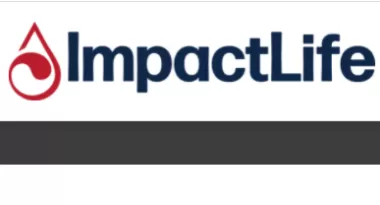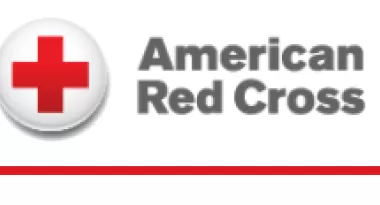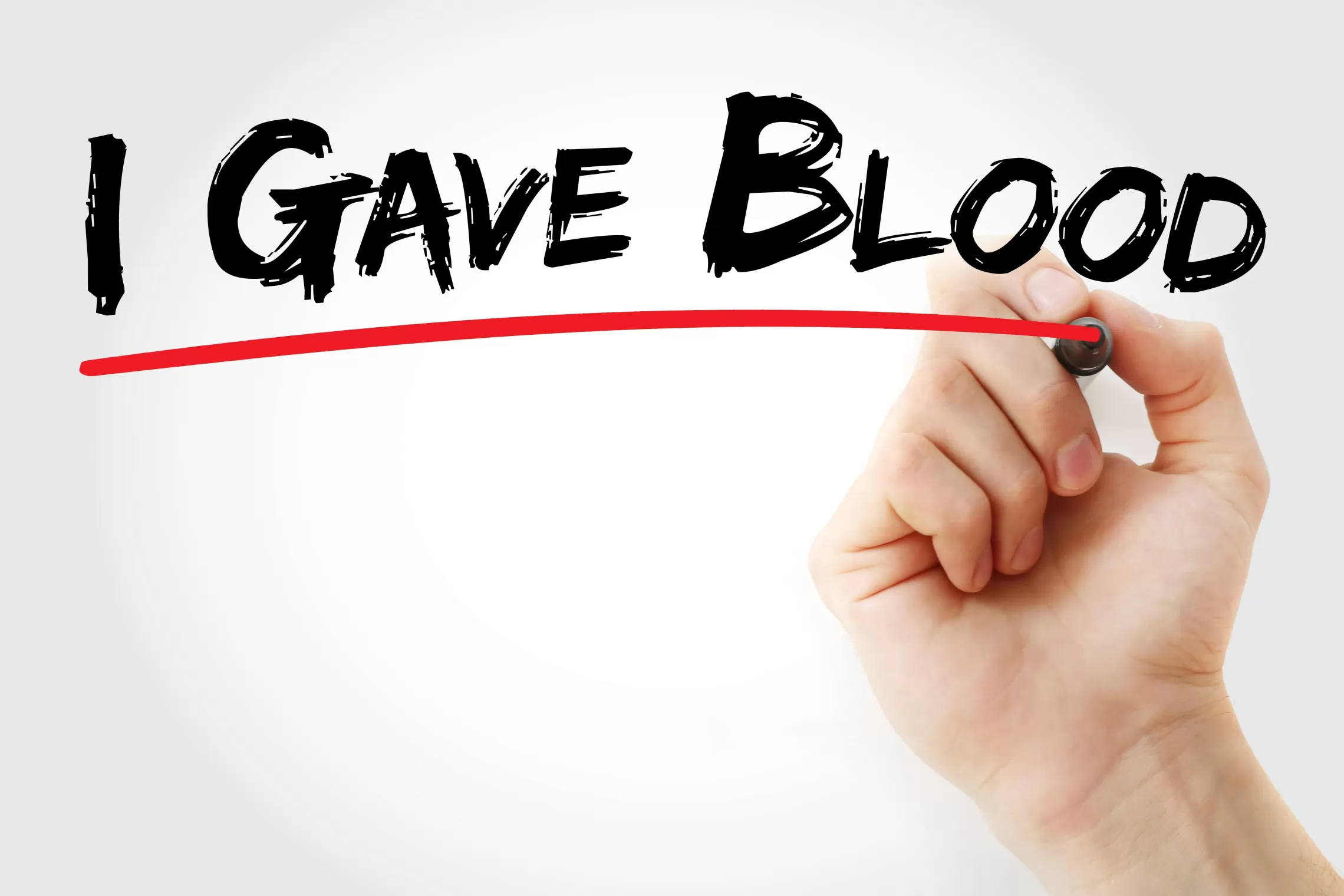Campus Y is now hosting University-Wide Blood Drives, to carry on a lifesaving tradition at Washington University in St. Louis, and we invite you to get involved. Our blood drives are sponsored in partnership with the American Red Cross and Impact Life (formally known as Mississippi Valley Regional Blood Center.)
Health and Safety Protocols
American Red Cross and ImpactLife have taken measures to ensure the health and safety of donors, including temperature screenings, distancing donor beds, and extra sanitation. We recognize the importance of maintaining a blood supply, especially during this time of crisis. If you are healthy and able, we hope you will consider donating. The blood banks are available to answer any questions.
Note: WashU blood drives adhere to university and public health guidelines and policies. Participants must align with current guidelines and policies at the time of the event, including but not limited to masking, physical distancing, hand hygiene, and self-screening. For more information, go to covid19.wustl.edu
For the safety of the blood donor and the recipient, all blood donors must undergo an evaluation to determine their eligibility to give blood. Eligibility information can often be confusing and overwhelming for first time donors so don’t hesitate to ask any question to the blood bank staff at any of our locations. If you were deferred in the past from donating, you may be able to donate again. Final determination of eligibility will be determined on the day of donation. Check out the donor resources below for more information on eligibility:
- Eligibility information (American Red Cross)
- Eligibility Information (ImpactLife)
- Donor FAQs
Each time you come to donate blood, the blood bank staff will check your hemoglobin, an iron-containing protein. This is done to protect both you, the donor, and the patient who receives your blood. Many people are temporarily restricted from giving blood due to low hemoglobin levels.
To increase the chance that your hemoglobin level will be high enough to donate blood on your chosen day, you can raise your level of iron by eating iron-rich foods or by taking supplements.
Foods Rich in Iron
- Meat Liver, Beef, Lamb, Turkey, Ham, Chicken, Veal, Pork
- Fruit Prunes, Watermelon, Dried Apricots, Dried Peaches, Strawberries, Raisins, Dates, Figs
- Breads and Cereals Enriched Bread, Whole Grain Bread, Enriched Noodles, Bran Cereals, Corn Meal, Oat Cereal, Enriched Rice
- Seafood Shrimp, Mackerel, Sardines, Oysters, Clams, Scallops, Tuna
- Vegetables Spinach, Sweet Potatoes, Peas, Broccoli, String Beans, Collards, Tomato Juice
- Others Eggs, Dried Peas (split peas, chick peas), Dried Beans (lima, kidney, navy), Instant Breakfast, Corn Syrup, Maple Syrup, Lentils, Molasses
If you have been temporarily deferred for low hemoglobin levels, increase your iron intake and try donating again in about a week.
What else should you know about iron?
- Vitamin C enhances the absorption of the iron you eat. Eat fruits and vegetables rich in vitamin C along with food high in iron.
- Tea interferes with iron absorption by about 50 percent.
- Iron in meat is absorbed twice as efficiently as that in vegetables. Only two percent of the iron in spinach is absorbed. More iron from vegetables can be absorbed if meat is eaten at the same meal.
- Iron pots, such as cast-iron skillets, are an excellent source of iron, especially when used for cooking acidic foods. Spaghetti sauce increases from three to 88 milligrams of iron per half cup when simmered in an iron pot for three hours. Steel cookware provides no additional iron.
Why do you need iron?
- Iron is part of hemoglobin, a protein that gives blood its red color.
- Hemoglobin cannot be created without iron. About 250 milligrams of iron are needed to produce the hemoglobin for one pint of blood.
- Too little iron in your blood results in iron deficiency anemia. Anemia reduces the amount of oxygen in the blood, which can contribute to malfunctioning of the heart, muscles and brain.
- About half of your body’s iron supply is contained in your red blood cells.
Whether you are a first time donor, or regular blood donor, this is the place for you! Check here for information about the donation process, as well as how to prepare for your donation.
Overview of the Donation Process
Step One: COVID-19 Precautions Participants must align with current university COVID-19 guidelines and policies at the time of the event, including but not limited to masking, physical distancing, hand hygiene, and self-screening.
Please complete your self-screening before coming to campus.
For American Red Cross donors, please complete a pre-registration Rapid Pass prior to donation at redcrossblood.org/rapidpass. This helps expedite the process and the length of each donors’ onsite visit.
Step Two: Registration Staff will sign in all guests and go over basic eligibility and donation information. Take some time to read over all information about donating blood and feel free to ask any questions you the staff members.
Step Three: Mini-Physical/Health History After you have completed your paper work, you will then undergo a brief interview about your health history and the places you have traveled. The blood bank nursing staff will take the time to review your temperature, blood pressure, pulse, and hemoglobin level present in a sample of blood. This will be conducted confidentially in a private location at the blood drive location.
Step Four: Donation This is the part you’ve been waiting for! The blood bank staff will take the time to seat you comfortably and prepare you for your donation. The process is safe, sterile and typically takes 10 minutes to complete!
Step Five: Recovery After donating, you will be escorted to the canteen or snack area for recovery. Take some time to replenish the nutrients lost in the donation process by have a snack and something to drink before resuming normal activities. Celebrate the feeling of knowing that you have helped save lives!
Before Your Donation
- Make sure to eat foods high in iron such as red meat, raisins and green, leafy vegetables a couple days before donating to ensure that your iron level is high enough to donate.
- NOTE: Stay away from tea; it depletes your iron level!
- Bring a picture ID with you to the blood drive.
- Get plenty of rest the night before.
- Drink plenty of fluids.
- Eat before the actual donation.
- Talk to the staff before the donation if there are any concerns.
After Your Donation
- Enjoy the good feeling that comes with knowing that you have saved lives!
- Be sure to eat regular meals.
- Drink plenty of fluids over the next 24-48 hours to replenish any fluids you lost during donation.
- Avoid strenuous physical activity or heavy lifting for about five hours after donation.
- If you feel light headed, lie down, preferably with feet elevated, until the feeling passes.
- Avoid smoking for one hour after donating.
What is Ally Donation?
The intent of ally donation is to create an avenue for people to show support for those who are ineligible or unable to donate blood. Allies may donate blood on behalf of a friend or colleague, and may also support the blood drive through social media or promoting the blood drive to others.
Who is it For?
The Ally Donation initiative was developed in the context of the FDA’s “MSM policy” (men who have had sex with other men), which was enacted at the height of the HIV/AIDS crisis. The policy initially indicated an indefinite deferral for MSM. It has since been revised to a 12 month blood donor deferral since last MSM contact. The Ally Donation initiative is intended for individuals affected by this policy, but anyone who is affected by FDA eligibility requirements is invited to participate.
Why Are We Doing It?
Ally donation was first introduced at Washington University blood drives in April 2015 in an effort to show support for students, faculty, and staff who cannot or choose not to donate blood because of FDA restrictions.
How Can I Participate?
Find a friend or colleague to donate on your behalf. If you choose, arrange a time to join a friend in their donation process. Their entire donation will last about an hour, so be prepared. Participants can stay with their ally for the entire donation process except for the medical history portion, which must remain private because of HIPAA regulations. That said, please be respectful of medical personnel. When is It? Ally donation is available at all university-wide blood drives.


